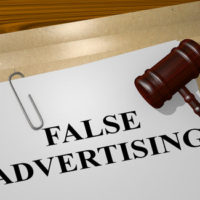McDonald’s Value Meal Might Not Save You Money — But Judge Says It is Not False Advertising

Recently, a United States federal court judge in Illinois ruled in favor of McDonald’s in a deceptive advertising lawsuit. According to the allegations raised in the class-action lawsuit, buying a McDonald’s ‘Extra Value Meal’ was actually somewhat more expensive than purchasing each item included in the meal individually. However, the federal judge ruled that while this was true in some cases, McDonald’s did not violate any advertising regulations.
At Pike & Lustig, our Florida business law attorneys have discussed the issue of false advertising cases before. It can sometimes be difficult to draw the ‘line’ in deceptive advertising lawsuits. This case provides an illustrative example of a type of marketing practice that, while understandably frustrating to some consumers, does not constitute false advertising.
Understanding the McDonald’s Extra Value Meal Pricing Scheme
Kelly Killeen, a woman from Chicago, filed a class-action lawsuit against McDonald’s after discovering that she purchased an ‘Extra Value Meal’ that was actually more expensive than it would have been to buy each of the component food items individually. In her example, the Extra Value Meal cost $5.06, while it would have only cost $4.97 to buy each of the three items included in the meal separately. This was not a unique example. In many cases, McDonald’s Extra Value Meal actually cost the customer more money than separate individual purchases would have cost.
The lawsuit filed in this case alleged that this was an illegal and deceptive advertising practice. According to the class-action, McDonald’s was intentionally misleading consumers because the term ‘Extra Value Meal’ inherently implied that there would be costs savings associated with purchasing all of the included food items together.
Mere ‘Puffery’ is Not False Advertising
United States Federal Court Judge Elaine Bucklo rejected the argument filed by consumers. In her decision, Judge Bucklo highlighted two specific key points to explain that McDonald’s practices did not violate truth-in-advertising regulations. First, all pricing information was disclosed to customers on a large sign board directly behind the register. Customers had the opportunity to do the math on their own and conduct a price-to-price comparison. McDonald’s never concealed this information. In addition, the term ‘Extra Value Meal’ makes no definitive claim. While it states that this specific meal in question is a ‘value’, it does not say that it is a value compared to any specific alternative purchase. This case serves as a useful reminder to both companies and consumers: it is difficult to prove false advertising if a business does not make a definitive claim.
Contact Our Florida Business Law Lawyers Today
At Pike & Lustig, LLP, our experienced South Florida business litigation attorneys have considerable experience handling false advertising issues. If your company is facing a lawsuit for deceptive advertising, or if you are considering filing a claim against another business, we can help.
For a free, fully private case evaluation, please contact us today. We have offices in Miami and West Palm Beach and serve clients all over the region, including in Jupiter, Homestead, Hialeah, and North Miami Beach.
Resource:
fox5dc.com/news/judge-dismisses-case-against-mcdonalds-extra-value-meals-says-name-isnt-misleading



